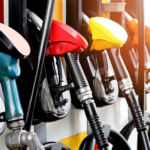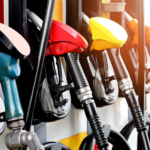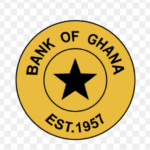
The National Petroleum Authority (NPA) has long been entrusted with dual responsibilities: regulating the petroleum sector and managing critical funds.
However, this overlapping mandate has led to inefficiencies and a lack of accountability, raising serious concerns about the management of national resources.
Specifically, as a fund manager, the NPA has failed to demonstrate accountability and transparency in managing these accounts over the years. These funds are expected to generate significant surpluses annually, yet the NPA—whether through legal or illegal means—expends large portions of these surpluses and declares only insignificant amounts to the state. Full disclosure and proper utilisation of these surpluses could diversify resources into other national priority areas.
These listed reasons informed our call for the decoupling of the fund management activities from regulatory activities:
Unified Petroleum Price Fund (UPPF)
Managed by the NPA, this fund is derived from the UPPF margin, currently set at 90 pesewas per liter. The margin covers the freight cost of diesel and petrol from depots to retail outlets. Based on discussions with transporters, with an annual consumption of approximately 5 billion liters, the fund generates over GH¢4 billion yearly. Only 40% of this amount goes to transport companies via Oil Marketing Companies (OMCs), while the remaining 60% is remitted to the NPA. This implies an annual surplus of at least GH¢2 billion for the NPA. However, the auditor General’s report indicated that the Fund ended the year with a surplus of GH¢524,682,358 as compared with a deficit of GH¢131,455,361 recorded in 2022, representing an improvement of 499.1% in its financial performance. These funds reported by NPA are under declaration of surplus incomes from the fund if compared to about 4.5 billion liters of gasoil and gasoline consumed annually generating about GH¢4 billion annually.
Since 2015, the NPA has not accounted for these surpluses recorded to the Ghanaian public and how the fund reported a deficit in 2022 remains a mystery because the equalization zone framework gives the fund more income than expending. This surplus could significantly support government priorities if properly managed.
Primary Distribution Margin (PDM)
The NPA also manages the PDM fund, which generates over GHC 1.3 billion annually. This fund covers inter-depot margins, the Bulk Oil Storage and Transportation (BOST) handles only about 7% of product distribution to other depots nationwide. Consequently, approximately 70% of the fund constitutes surplus income, amounting to about GHC 900 million annually. There is very limited and unsatisfactory transparency regarding how these surpluses are utilized for national development. BOST uses this margin to deduct 3% from Tanker Owners incomes as dues payment on behalf of membership of the Tanker Ownership Unions, and these collections could finally end up being misapplied. Since the introduction of the PDM, neither NPA nor BOST has publicly disclosed the surpluses made from this margin, this constitutes gross affront to the principles of transparency and accountability.
Cylinder Recirculation Margin (CRM)
Since April last year, the NPA has imposed a fee of $80 per metric ton on LPG users for cylinder investment and bottling. As of June 2025, the fund has accrued over $30 million (more than GHC 315 million), sadly, less than 1% of LPG consumers purchase products through the CRM. As at May, out of 28 million kilograms of LPG consumed across the country, only 132 thousand kilograms were sold through the cylinder model, the highest recorded since January, 2025. The factual implication is that, out of $2.3 million generated in May 2025 from the cylinder investment and bottling margin of $80/MT, only $10,556.4 was allocated to bottling companies and cylinder manufacturers. In the past five months of 2025, NPA made some over $10 million from the CRM margin. However, only about $37,000 has been used with a surplus of about $9.9 million surplus income unaccounted and undisclosed. The secrecy with which the authority mismanages this account is appalling, the reason fund must be decoupled from the regulatory activities.
In total, the NPA accumulates over GHC 3 billion in surplus income annually from these three funds alone, sardonically, the utilization of revenue accrued from these funds remain undisclosed to Ghanaians, particularly petroleum users.
Additionally, the NPA manages other funds that lack the required and desired accountability and transparency. We urge your ministry to take the following actions:
1. Conduct a comprehensive audit of these funds for the periods ended 2021 to 2024, with special focus on the year 2022 when the fund that periodically accrues gains was said to have recorded a loss for the year 2022.
2. Amend the NPA’s mandate to decouple its regulatory role from fund management.
3. Transfer fund management responsibilities from the NPA to the Ministry of Finance (MoF)
This call for reform is driven by the need to safeguard national resources and ensure their proper allocation for the benefit of all Ghanaians. Transparency and accountability in the management of these funds is not just a legal obligation but a moral imperative.
- President Commissions 36.5 Million Dollars Hospital In The Tain District
- You Will Not Go Free For Killing An Hard Working MP – Akufo-Addo To MP’s Killer
- I Will Lead You To Victory – Ato Forson Assures NDC Supporters
Visit Our Social Media for More




